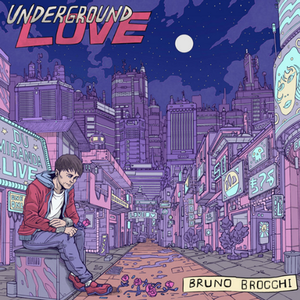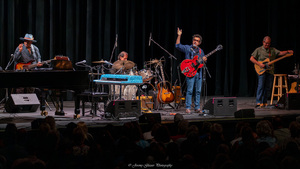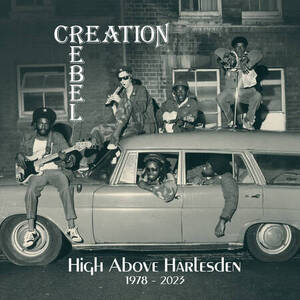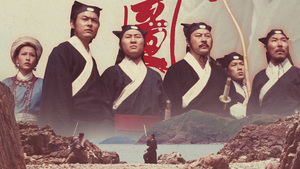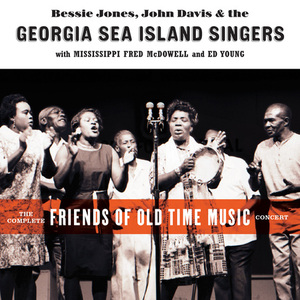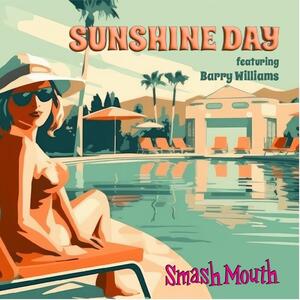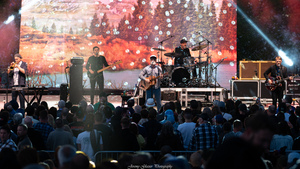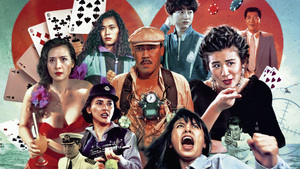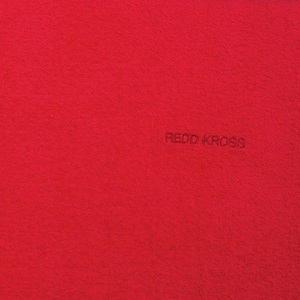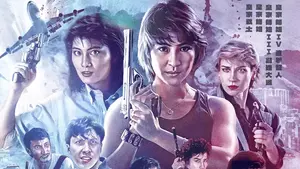The Rosenbergs
Mission Impossible?
Sean Slone
“ros”
The Rosenbergs are a New York-based power pop band with a terrific new record called Mission: You that will appeal to fans of bands like The Posies and Fountains of Wayne. But after a couple of years of being touted as one of the best unsigned bands in America, it is the band’s unorthodox approach to the business side of the music business that is making a name for the band. First, the band protested the performance contracts of the USA Network’s Farmclub program. Then the band rejected overtures from major record labels to sign an unusual agreement with Discipline Global Mobile, a company led by legendary guitarist Robert Fripp. Now the Rosenbergs are on a tour sponsored by that alleged scourge of the music industry, Napster. An atypical marketing and distribution plan for the new CD (which comes with an extra copy with the Napster logo) is in place as well. I talked with Rosenbergs vocalist-guitarist-songwriter David Fagin about all of the above during a late February telephone interview as the band prepared to make their way between gigs in Birmingham, Alabama and Memphis.
• •
So I guess you guys are on the Napster-sponsored tour right now?
What’s Napster?
[Laughs] Can you tell me about how that partnership is working and how it all came about?
Well it’s going really well. Our manager, Adrian Molloy, was the one who knew somebody at Napster. And it was just I think originally supposed to be y’know, “let’s get a song on their Web site,” because they were supporting what we were doing as far as going a different route than a major record deal. And as our deal with DGM got further [along], Adrian and Dave Singleton over at DGM were the ones who proposed to us, “how do you guys feel about giving away a copy of your CD with every CD.” And we said “that sounds like a great idea,” because it’s something that the major record industry would never even dream of in a million years… And they basically presented it to Napster and they jumped at the idea and the rest could be history, who knows?
Well it seems like giving people an extra copy of the CD is almost anti-Napster, in a way, because it’s encouraging the sharing of the actual CD rather than the digital file.
I mean, you’ve got a point there, but at the same time, I think our CD is going to end up there sooner or later anyway. And people who have two friends, maybe the guy will take it and burn it or something like that. But we saw a perfect example of why Napster at least works for a band like us in Nashville, when we pulled into town and it was like 11:30 at night and we went to see if our CD was in the stores like Wherehouse Music yet. And we walked in, there were maybe six people in the store and this guy and his girlfriend entered about ten feet ahead of us. And as we entered the store, I said to no one in particular, “buy The Rosenbergs.” And he turns around and goes, “are you guys The Rosenbergs?” We were like “yeah, why?” And he goes, “I just came to buy your CD.” And we’re like, “you’re kidding. How did you hear of it?” And he goes “I downloaded your song off of Napster…” It works for us because we’re not spending $70,000 a month on radio promos. So having 50,000 people a day hear our music on Napster is a great way to get our music out there.
What is unique about the deal with DGM, and how did it come about?
Well, it basically came about from an artist panel that we spoke on at the New York Music Expo last spring. And we were on a panel with Chuck D and Jerry Harrison and Tina [Weymouth] from the Talking Heads and [producer] Bob Ezrin. And [Robert] Fripp was the keynote speaker at that convention. And he heard us speak, he was in the crowd and he came up to us afterwards [and said], “I don’t have to hear your music. You guys are perfect for what we want to do.” Of course, eventually he did want to hear some music. He actually came to the studio the next day to hear some stuff and we were just like, “oh my God here comes one of the most incredible guitar virtuosos in the world to hear our three chord pop songs.” But, y’know, his favorite band is the Beatles and all that stuff, so he was great. And we just started talking from that point on about what to do and where to go, because it was kinda like uncharted waters. You couldn’t really look at a standard deal and just start breaking it apart. So basically, it took about three or four months of talking and stuff and it was never like an adversarial negotiation with a major record label. It was basically trying to figure out how we can both work this out. And the way it worked was DGM is not our record company, they’re our management company. And basically, they get a percentage of everything that we do, like any other manager would, and they utilize their chains of distribution for us around the world. So Ryko’s in America and whether it be Avex in Japan and this one in Italy and this one in Spain or Sweden, that’s basically the way it goes. And we’re free to license the record 50 times over to different countries around Europe and [DGM] in turn shares from the licensing deals.
Well, during the time over the last couple of years that you guys have been touted as the best unsigned band and labels were courting you and everything –
Pure hype. We suck.
– [laughs] what were some of the things that you feared about getting involved with the major label machinery?
Well, the obvious ones. Anybody that’s ever known a band that’s been on a record label or been in a band that has a record deal is probably still trying to get another record deal because you get dropped after two weeks when your record comes out. You might get your tour support pulled. You might get your record pushed backed a year for a more important flavor of the month coming out at that particular time. There’s so many different scenarios. Your A & R guy could lose his job right in the middle of your entire record coming out and the whole push. Somebody else could become President and decide that you guys aren’t the chosen ones and stuff. And so in this situation, we’re their only priority right now and we know that our record’s gonna get a shot and we know that if it tanks, it’s basically us that’s going to be sinking the ship and not eleven Vice Presidents who have a bottom line and stockholders to appease. So basically, given all of that, we feel it’s much more of a risk to go with a major label than it is to do what we’re doing, because at least we have an opportunity. Supposedly, like 98 percent of major records only sell about 400 copies, according to the statistics. And we’ve got tons of friends, everybody from Nada Surf to Superdrag, who, y’know, you release a record and then you end up in court for two years trying to get the rights back because it was shelved or something. And you spent a year of your life making it… If we lost control of our product, we would just be sick to our stomachs. And the fact that when you hand it over, you basically say “goodbye” and watch it sail down the river and you have no control over anything else. Your budgets, your videos, your promotion, your design, your campaign. It’s pretty scary.
One thing you guys became known for is you were instrumental in bringing to light some of the artist-unfriendly aspects of Farmclub’s performance contracts. Tell me about that experience, and has anything happened as a result of your mini-revolt?
Well, basically, I mean, what we thought we were doing was common sense. Just saying no to a company that said they were basically going to be the new way of the Internet and a major record label combining themselves. And they were just pretty much starting out the same old, same old by trying to get everything a band owns. And, when we sent out the e-mail, it just went out to a couple of our friends in bands saying “watch out,” and someone posted it and it was like boom. The next thing you know, it was like CNBC and L.A. Times and Entertainment Weekly and all that stuff. We really thought what we were doing was obvious, but apparently, a couple of the bands that we talked to who had gone on the show in the early days said, “well, it’s not a bad deal. We managed to get a thousand dollars for our lawyer.” And we were just like, “um, okay…” If that’s the kind of mentality that’s going around these days, then it’s no wonder that the record industry is the way it is. That’s when people started e-mailing us and saying, “are you guys the leaders of the people’s revolution or something like that?” We were just like, “no, we’re a pop band.” Hopefully, at this time, we’re doing for pop music what Ani DiFranco did for folk or [Fugazi’s] Ian MacKaye did for punk.
And so basically, Farmclub, according to them, abolished the contract altogether, not because of us but because it wasn’t working in time with their show or something, but who knows. We’d like to take credit for some of that.
It doesn’t seem like this is the ideal time to be essentially a power pop guitar band. How do you feel about the current state of music and about the band’s chances of being successful in the current environment?
Well first of all, we’re not looking to play Giants Stadium. We just want to be able to continue what we’re doing and tour and not have to go back to our day jobs and stuff like that. So if that’s possible, we’ll consider that a success. The way the music industry has become [is like] an assembly line where two guys write a song and they pass it on to the producer who then hires musicians to record it. Then they cast for the band to sing it and then they’ve got costumers and then they bus in a busload of 500 teenage girls all wearing their T-shirts who’ve never heard the band before. And then the band jumps on a tour bus having never stepped in a van before. As well as having to probably sign all their rights away to that music that they just supposedly were singing. So in that situation, we would rather not be a part of that. And at the same time, what we see happening is that the people who are also really upset about the fact that you’re beating a horse until it’s not only dead but blue with Dream and with O-Town and all this crap that you’re trying to shove down everyone’s throat… [And] that 20-30 something crowd is like “what about us?” Y’know, we don’t want to listen to eleven-year-old music and we don’t want to hear bands like Godsmack or something 24 hours a day, because that’s basically the soundtrack for the Armageddon. You basically can take one record and just say it’s any band these days on hard rock radio and they’ll believe you because they all sound the same.
Having just begun the interview with all of these business- related questions, do you ever fear that your advocacy of these issues might overshadow the band’s music? Because you guys are a fun pop band…
Yeah, we don’t mind that right now we’re more well-known for what we say than what we play. But we feel that we can walk the walk as well as we talk the talk and anybody that comes to one of our shows knows that when we hit the stage, we leave all the business stuff behind and it’s basically “girl screws up boy” pop songs. Y’know, we’re not Midnight Oil or U2 singing about political issues and stuff like that. And most people are quite surprised that we play pop music and we’re not some kind of underground punk band or something like that. Because it’s strange for bands that play radio-friendly pop music to do stuff like this, I guess. But whatever style of music that you play, whether it’s hip-hop or R&B or hardcore or grunge, music is music and everybody is put into pretty much the same position once they sign a major record deal. So hopefully, even people who don’t like pop music will support the business model and tell a friend who does. ◼

